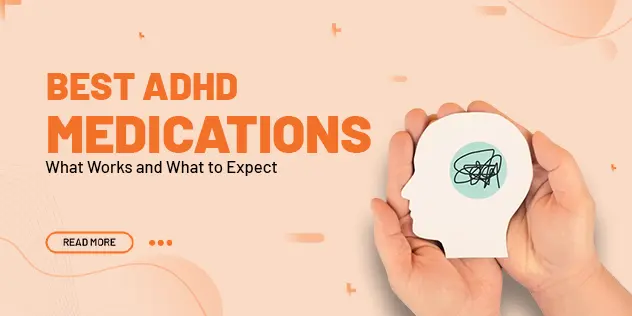Attention-Deficit/Hyperactivity Disorder (ADHD) affects millions of children and adults globally. While therapy, diet, and behavioral strategies play crucial roles in managing ADHD, medication remains one of the most effective treatments for improving focus, reducing impulsivity, and enhancing daily function.
In this blog, we explore the most prescribed and trusted ADHD medications, what you can expect when starting them, and how to work with your healthcare provider to find the best fit.
1. Stimulant Medications: The First-Line Treatment
Stimulants are often the first type of medication prescribed for ADHD. They work by increasing levels of dopamine and norepinephrine in the brain, neurotransmitters crucial for attention and impulse control.
Common Stimulants Include:
- Adderall (Amphetamine/Dextroamphetamine): Popular among both children and adults. Comes in immediate and extended-release (XR) forms.
- Ritalin (Methylphenidate): Available in short and long-acting versions. Often used in school-aged children.
- Concerta (Extended-release Methylphenidate): Offers long-lasting coverage with one morning dose.
What to Expect: Many people notice improvements in focus and reduced hyperactivity within 30 to 60 minutes. Side effects can include appetite loss, insomnia, or mild anxiety. It’s crucial to monitor these and adjust doses accordingly.
2. Non-Stimulant Medications: Alternatives with Less Abuse Potential
Non-stimulants are prescribed when stimulants cause too many side effects or are ineffective. They may also be preferred for individuals with a history of substance use.
Notable Non-Stimulants:
- Strattera (Atomoxetine): A selective norepinephrine reuptake inhibitor. Takes a few weeks to become fully effective.
- Intuniv (Guanfacine ER) & Kapvay (Clonidine ER): Originally used for blood pressure, now also prescribed for ADHD, especially when tics or sleep issues are present.
What to Expect: These medications are generally well-tolerated. However, they may cause drowsiness or dizziness initially. Full therapeutic benefits often take 2-4 weeks to appear.
3. Choosing the Right Medication: Personalization is Key
No single ADHD medication works for everyone. Factors such as age, co-existing health conditions, and individual response determine the best choice.
Steps to Find Your Best Fit:
- Work closely with your healthcare provider.
- Keep a daily log of symptoms and side effects.
- Be patient; finding the right dose or medication may take time.
4. Final Thoughts: Medication is a Tool, Not a Cure
While medications can dramatically improve symptoms, they work best when combined with behavioral therapy, education, and lifestyle changes. Regular follow-ups and open communication with your doctor are vital for long-term success.
If you suspect you or a loved one may benefit from ADHD medication, consult with a licensed medical professional. Never self-medicate or adjust doses without guidance.

